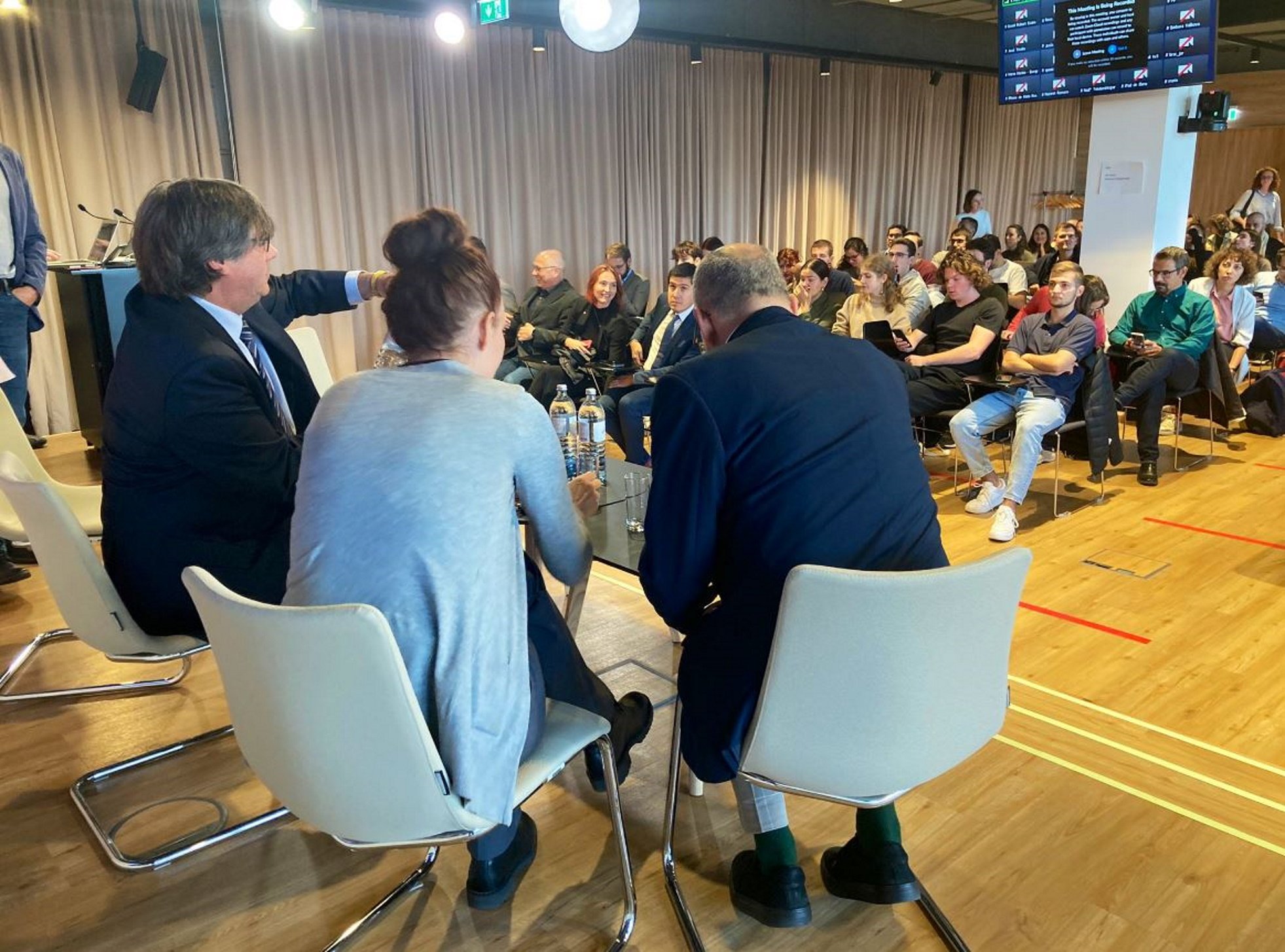A Spanish nationalist has assaulted the Catalan president in exile, Carles Puigdemont, at Vienna Airport, while he was preparing to return to Brussels after his visit to the Austrian capital. According to the president himself, the individual struck him on the shoulder and yelled out in Spanish "To jail!" "And then he ran away without being brave enough to show his face," he said. Despite the incident, Puigdemont did not suffer personal injury.
The former Catalan president attributed the attack to the fact that neither king Felipe VI nor the PSOE- Podemos government have "undone" the violent attitude unleashed towards the Catalan independence movement in 2017, encapsulated in the expression "A por ellos" - "Let's go get 'em" used at that time by Spanish nationalists. Said Puigdemont: "Hence the impunity they show. The dozens of police complaints I have made for death threats never go anywhere, because it is well known that Spanish justice treats everyone the same," he said, with a thick layer of irony.
Puigdemont also explained that the Central European University of Vienna had received pressure from Spanish sources to prevent him from taking part in his conference there yesterday, but the university ignored it, and the event went ahead normally.
Suposo que això molesta determinats personatges. Als qui no volien que la universitat m'acollís, per exemple. I a l'individu que a l'aeroport m'ha colpejat l'espatlla cridant "¡a la cárcel!" i se n'ha anat corrents sense tenir la valentia de donar la cara.
— krls.eth / Carles Puigdemont (@KRLS) September 23, 2022
"The trip to Austria was very positive, with a very good reception. It was an honour to visit the tombs of the emperors and read that inscription on the tomb of Joseph I, as well as the resting places of some of the thousands of Catalans who went to Vienna in exile, after 1714", the president said. "I guess this bothers certain people. The ones who didn't want the university to allow my visit, for example. And the individual who hit me on the shoulder at the airport shouting "To jail!" before running away without having the courage to show his face," he added.
Yesterday at this university, Puigdemont delivered a conference entitled 'The Contestation of Statehood and Sovereignty in Europe: The Case of Catalonia', which was a round table discussion before a large audience. During his speech, Puigdemont explained the experience of the referendum on independence from Spain, held on 1st October, 2017, and had the opportunity to defend that "the Catalan revolution is radically democratic".
Màxima expectació a una de les universitats més internacionals d’Europa @ceu amb la conferència del President Carles Puigdemont @KRLS a Viena. pic.twitter.com/CkbxGMpif5
— Josep Lluís Alay (@josepalay) September 22, 2022
Translation:
"High expectation at one of the most international universities in Europe @ceu for president Carles Puigdemont's conference in Vienna" — Josep Lluís Alay
Although he shared the historical context of the Catalan case (going back to the 17th century Spanish War of Succession and the fall of Barcelona in 1714) and also the economic one (in which he pointed out how today the fiscal balance weighs against the interests of Catalonia), Puigdemont remarked that the independence movement in Catalonia does not have these reasons at its root. "Ours is not a typical nationalist revolution with a strong ethnic component and a slogan of the 'one nation, one language' type," he said. "We haven't made our lives difficult in this way just to replicate Spain on a smaller level, changing the name and the flag but maintaining an antiquated state."
By contrast, emphasized the Catalan president in exile, what the independence movement seeks is to abandon Spanish anti-democratic practices and achieve a much more inclusive and permissive model. "Let no one be sent to prison for their political opinions, or for singing songs against the king. Let's have a state whose citizens are not spied on and where the monarchy is not sacrosanct", he wished. A deep conviction that it is impossible to change Spain in these matters - from within - has led "a majority of Catalans" to struggle for independence, he told the audience.

